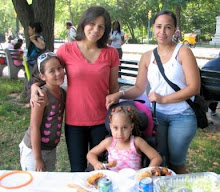The final Part C regulations contain numerous changes and additions, including:
• Transition requirements have been revised, including provisions related to notification of the local education agency (LEA) and state educational agency (SEA), timelines, an opt-out policy, the transition conference, and the transition plan.
• The 45-day required timeline from referral to the Individualized Family Service Plan (IFSP) meeting has been retained with the addition of some provisions permitting documentation of extraordinary circumstances for a delay
• Natural environment provisions have been revised to reflect the 2004 statutory change.
• Changes in the content of the IFSP have been made, including in the “early intervention services” and “other services” components.
• Several changes have been made to procedural safeguards, including provisions related to written prior notice, confidentiality, surrogate parents, and dispute resolution.
• Changes have been made in provisions related to financial responsibility, systems of payment and ability to pay as well as to the use of public benefits, insurance, and private insurance.
• Provisions related to monitoring, enforcement, reporting, and allocation have been included in a new subpart of the Part C regulations.
For a complete list of Part C federal regulations click here.
About IDEA Part C in New York State
The New York State Early Intervention Program (EIP) is part of the national Early Intervention Program for infants and toddlers with disabilities and their families. First created by Congress in 1986 under the Individuals with Disabilities Education Act (IDEA), the EIP is administered by the New York State Department of Health through the Bureau of Early Intervention. In New York State, the Early Intervention Program is established in Article 25 of the Public Health Law and has been in effect since July 1, 1993.
To be eligible for services, children must be under 3 years of age and have a confirmed disability or established developmental delay, as defined by the State, in one or more of the following areas of development: physical, cognitive, communication, social-emotional, and/or adaptive.For more information click here.


















